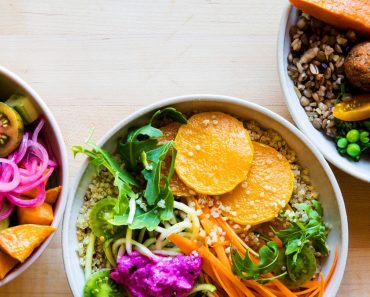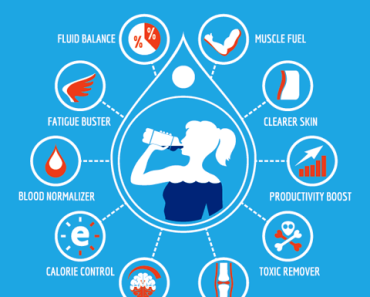Maintaining a balanced diet is fundamental to achieving optimal health. It involves consuming the right proportions of nutrients to support bodily functions, energy levels, and overall well-being. This article delves into the essentials of a balanced diet, its benefits, and practical tips to incorporate it into daily life.
What is a Balanced Diet?
A balanced diet provides all the necessary nutrients your body needs to function correctly. It includes a variety of foods in the right proportions, ensuring you get a mix of carbohydrates, proteins, fats, vitamins, and minerals. Here’s a breakdown of these essential nutrients:
Carbohydrates: They are the body’s primary energy source. Choose complex carbs like whole grains, fruits, and vegetables over simple sugars found in sweets and processed foods.
Proteins: Necessary for building and repairing tissues. Include lean meats, fish, eggs, legumes, and nuts in your diet.
Fats: Important for energy and cell function. Opt for healthy fats such as those found in avocados, olive oil, nuts, and seeds while limiting saturated and trans fats.
Vitamins and Minerals: These are crucial for various bodily functions, including immune response and bone health. A diverse diet with plenty of fruits, vegetables, and whole grains usually covers these needs.
Fiber: Essential for digestive health. Whole grains, fruits, vegetables, and legumes are excellent sources.
Benefits of a Balanced Diet
Adopting a balanced diet has numerous health benefits:
Weight Management: Eating a variety of nutrient-dense foods helps maintain a healthy weight. It reduces the risk of obesity and related conditions such as diabetes and heart disease.
Enhanced Energy Levels: A balanced diet provides steady energy throughout the day, preventing the energy spikes and crashes associated with sugary or high-fat foods.
Improved Mood and Mental Health: Nutrient-rich foods support brain health and can improve mood, reduce stress, and lower the risk of depression.
Better Immune Function: A diet rich in vitamins and minerals strengthens the immune system, helping the body fight off infections more effectively.
Reduced Risk of Chronic Diseases: Consuming a variety of healthy foods lowers the risk of chronic illnesses like heart disease, diabetes, and cancer.
Healthy Skin, Hair, and Nails: Nutrients from a balanced diet contribute to healthy skin, hair, and nails, giving you a vibrant appearance.

Building a Balanced Diet
Creating a balanced diet doesn’t have to be complicated. Here are some practical tips:
Eat a Variety of Foods: Ensure your diet includes different food groups to get a range of nutrients. Aim for colorful plates with various fruits and vegetables.
Control Portion Sizes: Be mindful of portion sizes to avoid overeating. Use smaller plates and listen to your body’s hunger cues.
Include Whole Grains: Replace refined grains with whole grains like brown rice, quinoa, oats, and whole wheat products.
Choose Lean Proteins: Opt for lean protein sources like chicken, turkey, fish, beans, and tofu. Limit red meat and processed meats.
Incorporate Healthy Fats: Include sources of healthy fats such as avocados, olive oil, and nuts. Avoid trans fats and limit saturated fats found in fried foods and baked goods.
Stay Hydrated: Drink plenty of water throughout the day. Limit sugary drinks and opt for herbal teas or infused water if you need flavor.
Limit Added Sugars and Salt: Reduce your intake of added sugars found in sweets, sodas, and many processed foods. Also, limit salt by cooking at home and choosing fresh or low-sodium packaged foods.
Plan Your Meals: Planning meals ahead of time can help you make healthier choices and avoid last-minute unhealthy options.
Practical Daily Menu
Here’s an example of a balanced daily menu to help you get started:
Breakfast: Overnight oats with fresh berries, a spoonful of chia seeds, and a drizzle of honey. Pair it with a glass of low-fat milk or a dairy alternative.
Mid-Morning Snack: A small handful of almonds and an apple.
Lunch: Grilled chicken salad with mixed greens, cherry tomatoes, cucumber, and a light vinaigrette. Include a whole grain roll on the side.
Afternoon Snack: Greek yogurt with a sprinkle of granola and sliced banana.
Dinner: Baked salmon with a side of quinoa and steamed broccoli. Add a mixed green salad with olive oil and lemon dressing.
Evening Snack: Carrot sticks with hummus or a small portion of dark chocolate.
Challenges and Solutions
Adopting a balanced diet can be challenging due to busy schedules, budget constraints, or limited access to fresh foods. Here are some solutions:
Meal Prep: Prepare meals in advance to save time during the week.
Budget-Friendly Choices: Buy in-season produce, look for sales, and consider frozen fruits and vegetables which are often cheaper but still nutritious.
Access: If access to fresh food is limited, consider local farmers’ markets, community gardens, or online grocery services.
A balanced diet is the cornerstone of optimal health, providing essential nutrients that support all aspects of your well-being. By incorporating a variety of healthy foods into your daily routine, controlling portion sizes, and making mindful choices, you can enjoy the numerous benefits of a balanced diet. Remember, it’s about progress, not perfection—small, consistent changes can lead to significant health improvements over time.






